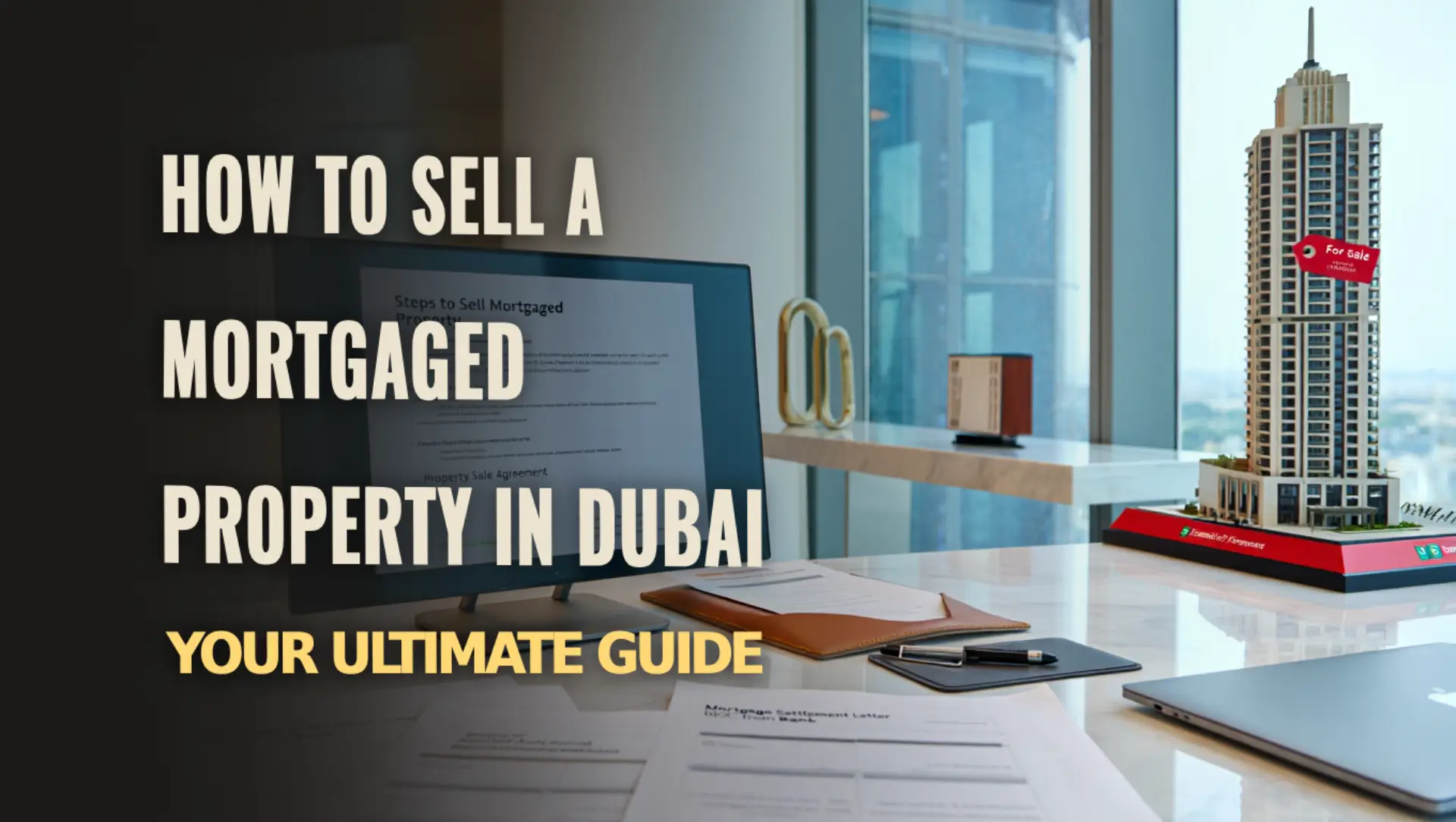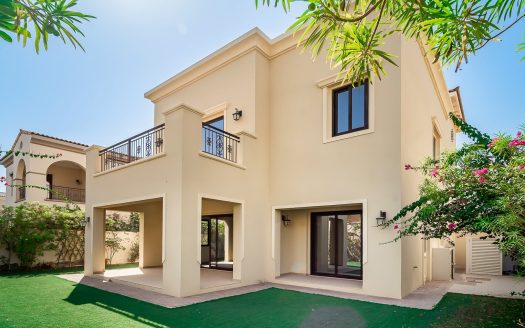How to Sell a Mortgaged Property in Dubai: Your Ultimate Guide
Understanding the Mortgage Landscape in Dubai

Navigating the sale of a mortgaged property can feel like wandering through a maze blindfolded. The dynamic property in Dubai market throws up its own unique hurdles when dealing with properties that still have outstanding loans. God, if only someone had explained this properly when I first started!
Ever caught yourself wondering, “How on earth can I sell this place when the bank still has its claws in it?” Join the club. Countless property owners hit this roadblock, especially in Dubai’s market that changes faster than the desert weather.
Look, Dubai’s mortgage situation has gone through one hell of a transformation over the years. Did you know that more than 70% of homes are bought with some kind of financing? That’s not just a random number—the Dubai Land Department actually reported that mortgage deals made up about 63% of all property transactions in recent months. Makes you realize just how many properties are walking around with financial baggage.
What really complicates matters—and this catches many sellers off-guard—is Dubai’s split personality when it comes to banking. On one side, you’ve got your conventional mortgages with their interest-based repayments, and on the other, Islamic financing working on profit-sharing instead. Each comes with its own recipe for headaches when you’re trying to sell, trust me.
Back in 2022, they overhauled the rules for selling mortgaged properties, which—thankfully—made getting those pesky no-objection certificates from banks somewhat less of a nightmare. We’ll dig into that mess later, but even with the improvements, you’ll still need your wits about you to get through it in one piece.
The Legal Framework for Selling Mortgaged Properties
Trying to sell a mortgaged property in Dubai without understanding the legal framework is like attempting brain surgery after watching a YouTube tutorial. It’s messy and nobody wins. The whole process wraps around Law No. 14 of 2008 (amended by Law No. 9 of 2009) and a bunch of regulations the Dubai Land Department dreamed up.
The cornerstone of this framework? Something called “restricted disposal” – a fancy way of saying you can’t sell your property until the bank that lent you money gives their blessing. This restriction sits on your property title like an unwanted houseguest, and needs proper attention before anyone’s signing transfer documents.
Here’s something most folks miss until it’s too late – there’s a big difference between “registration of mortgage” and “registration of property.” The first is basically the bank saying “we’ve got dibs on this place if payments stop,” while the second is about who actually owns the walls and roof. During a sale, you’ve got to handle both, and they follow completely different rules and procedures. What a headache!
Then there’s RERA (Real Estate Regulatory Agency), a branch of the Dubai Land Department that sticks its nose into these transactions. Their rules insist all mortgage settlements go through approved trustees – yet another hoop to jump through. These trustees basically play referee, making sure the mortgage gets properly cleared and everyone gets the money they’re supposed to.
Take that American expat who was selling his Downtown Dubai apartment last month. His lender was dragging their feet on the NOC like it was some kind of ancient secret. We had to pull out the specific legal provisions that basically force banks to cooperate, which saved him nearly a month of thumb-twiddling and stress-eating.
The legal hoops also include timing requirements that everyone’s supposed to follow. On paper, banks should cough up their NOC within 30 days after you apply. In reality? Could be a week, could be a month and a half, depending on which bank you’re dealing with and how complicated your mortgage is. And let me tell you, trying to coordinate this moving target with the other million parts of your sale is enough to make anyone consider becoming a hermit.
Obtaining the No-Objection Certificate: A Critical Step
Let’s talk about the No-Objection Certificate, or NOC as the locals call it. This little piece of paper might as well be made of gold for all the power it holds. Without it, you can kiss your property sale goodbye. The Dubai Land Department won’t even look at transfer papers unless this magic document from your bank is attached.
Getting your hands on an NOC isn’t exactly a walk in the park, either. Each bank has their own special flavor of bureaucracy, but generally expect to hand over a formal application, your original mortgage agreement (don’t lose that thing!), ID documents, and sometimes a valuation report. Oh, and money – banks charge anywhere from 1,000 to 3,500 dirhams just for the privilege of processing your request.
Here’s where many sellers get blindsided – banks don’t just rubber-stamp these things. They actually roll up their sleeves and compare what your property’s worth now against what you still owe them. Imagine the shock when a townhouse owner in Arabian Ranches discovered his property was valued 8% below his outstanding mortgage. The bank basically crossed its arms and refused to issue the NOC until he coughed up enough cash to reduce the loan-to-value ratio to something they could stomach. Expensive lesson, that one.
The waiting game for an NOC could drive a saint to madness. Emirates NBD and ADCB might get it done in about a week to ten days if you’re lucky. Islamic finance providers? You could be tapping your foot for up to three weeks. American sellers often hit the roof when they realize these timelines are more like vague suggestions than actual commitments. The bank can extend the wait without so much as a “sorry for the inconvenience” email.
Want a pro tip? Bypass the regular customer service channels and get yourself a direct line to someone in the mortgage department. Having a real person’s name and number can cut through days or even weeks of red tape. And for heaven’s sake, have all your documents ready and your payment history spotless before you even start. Scrambling to fix problems midway just adds to the delay.
Once the precious NOC finally materializes, remember it’s got an expiration date – usually 30 days, though some banks might stretch to 45 or 60 if you’re lucky. Time your application carefully with your sales timeline. If that NOC expires before you get to the Land Department, you’re back to square one, with more fees and more gray hairs to show for it.
Financial Calculations and Settlement Process

Let’s talk cold, hard cash. Selling a mortgaged property isn’t just about paying off what’s left on your loan—it’s a financial obstacle course that can make or break your return on investment.
First things first: get your hands on a mortgage settlement statement from your bank. This is your financial reality check that spells out exactly what you still owe, including the principal, interest that’s piled up, early payoff penalties, and whatever other fees the bank dreams up. Those early settlement fees? They typically bite off 1-3% of your outstanding loan, which can take a serious chunk out of your profits.
Here’s what the damage typically looks like when selling a mortgaged place in Dubai:
| Financial Component | Typical Range | Notes |
| Early Settlement Fee | 1-3% of outstanding loan | Islamic mortgages may have different structures |
| Loan Liability | Remaining principal + interest | Primary obligation to be cleared |
| Property Transfer Fee | 4% of sale price | Split between buyer and seller |
| Real Estate Agency Commission | 2% of sale price | Negotiable, but standard in the market |
| NOC Processing Fee | AED 1,000-3,500 | Varies by financial institution |
| Trustee Processing Fee | AED 2,000-5,000 | For facilitating the settlement process |
Something American investors often trip over: Dubai doesn’t do handshake deals when it comes to mortgage settlements. Everything has to go through an approved escrow system. The Dubai Land Department has its list of trusted offices and banks that act as the middlemen for property deals. They keep everybody honest and make sure the mortgage gets properly cleared before any money lands in your pocket.
Take that family who sold their Dubai Marina apartment when moving to Abu Dhabi. Everything looked great on paper—buyer ready, price agreed. Then bam! Surprise service charges nobody remembered to factor in. The bank dug in its heels and wouldn’t give final clearance until those charges were sorted. After some back-and-forth that nearly gave everyone ulcers, we worked out a payment plan with the property management folks that saved the deal without gutting the seller’s expected profit.
Another quirk of Dubai’s system that catches Westerners off-guard: there’s no simultaneous swap of keys for cash here. The whole process moves in slow motion compared to what Americans might be used to. First, the buyer’s funds have to land and clear in the escrow account. Only then can the mortgage settlement get processed. This creates an awkward waiting period of 1-3 business days that nobody warns you about until you’re in the thick of it.
And don’t forget the tax implications if your property has grown in value. Sure, the UAE doesn’t take a cut of your capital gains, but if you’re an American citizen or from certain other countries, your home government might still want its share of your Dubai profits. Worth chatting with a tax pro who understands both systems before you count your chickens.
Marketing a Mortgaged Property Effectively

Selling a mortgaged property is a bit like dating with baggage – you need the right approach to make it work. Having a mortgage hanging over your property doesn’t mean it’s unmarketable – it just needs the right spin.
Honesty goes a long way here. No law says you must splash “MORTGAGED PROPERTY!” across your listings, but being straight with serious buyers saves everyone headaches down the road. Surprisingly, explaining the mortgage situation clearly – along with your plan to handle it – often calms buyers rather than scaring them off. They appreciate knowing what they’re getting into before emotions and lawyers get involved.
When putting together your marketing materials, remember: lead with the property’s strengths, not its financial situation. Killer photos, immersive virtual tours, and detailed information about the property itself should do the heavy lifting. Let buyers fall in love with the place first; the mortgage discussion can wait for the second date.
Properties in Dubai’s premium spots – Downtown, Palm Jumeirah, Dubai Marina – tend to attract buyers who don’t break a sweat over mortgage complications. These folks usually have solid financial backgrounds and have danced this dance before. Other neighborhoods aren’t necessarily worse off, but you might need to adjust your approach depending on where your property sits.
Here’s a clever trick: if your current mortgage has favorable terms, especially in today’s rising interest environment, that could actually become a selling point. Some Dubai banks allow qualified buyers to take over existing mortgages, which could save them considerable cash on application fees and processing time. This strategy worked wonders for a Jumeirah Park villa that had locked in a five-year fixed rate well below current offerings. By promoting this possibility (with the standard “subject to bank approval” disclaimer), the property attracted financially savvy buyers specifically interested in this advantage, eventually selling for 4% above the asking price. Not too shabby!
The digital realm offers particular advantages when marketing mortgaged properties. Online platforms give you space to explain nuances that a newspaper ad or flyer simply can’t. Property portals like Property Finder and Bayut let you craft detailed descriptions where you can address the mortgage situation with finesse. Social media campaigns, especially targeted Facebook and Instagram ads, can help you find buyers who’ve successfully navigated similar purchases before.
Having a real estate agent who actually understands mortgaged property deals isn’t just helpful – it’s essential. They’ll screen potential buyers properly, making sure they have the financial muscle to follow through, whether they’re planning to assume the mortgage, arrange new financing, or pay cash. This vetting process prevents the special kind of heartbreak that comes when a deal falls apart after weeks of paperwork and planning.
Navigating Common Challenges and Solutions

Every mortgaged property sale in Dubai comes with its own set of headaches. Better to know what you’re up against before jumping in with both feet.
The nightmare scenario? Negative equity – when you owe more than your property’s currently worth. This became painfully common after the market corrections in 2015 and again when the pandemic hammered prices in 2020. There are escape routes, though they’re not exactly pain-free. Some banks offer negative equity transfer programs where you can roll the outstanding balance into a new property purchase. Or you can try negotiating a partial write-off, which isn’t as impossible as it sounds if you’ve been diligent with your payments.
Take that expat with an International City investment property that had tanked in value. His mortgage was a whopping 120,000 dirhams more than the property was worth – ouch. Rather than just throwing up his hands, he approached the bank with a detailed financial plan showing how he’d clear the remaining debt through structured payments. After some back-and-forth that probably shaved years off everyone’s lives, the bank agreed to a partial settlement that made selling possible without complete financial ruin.
Then there’s the timing nightmare – juggling the NOC’s short lifespan (usually just 30 days) with finding a buyer and closing the deal. It’s like trying to solve a Rubik’s cube while riding a unicycle. Smart sellers wait until they have a serious buyer with skin in the game (read: deposit paid) before even applying for the NOC. Some banks also offer pre-approvals for property sales, basically agreeing to the NOC terms in advance so they can fast-track the official document when needed.
Foreign ownership throws another wrench in the works, especially in areas with specific restrictions. Dubai has loosened up considerably on who can own what where, but some areas still have rules about buyer nationalities. Nothing kills a deal faster than discovering your buyer can’t legally own your property after weeks of paperwork.
Service charges are the silent killers of property deals. Many banks won’t issue final clearance until these are paid in full, and in Dubai’s established communities, these charges can add up to eye-watering amounts. Get an updated service charge statement early – like, first-thing early – so you know exactly what you’re dealing with before setting your sale price.
The Dubai Land Department’s bureaucracy deserves special mention. Despite digitizing some processes, transferring mortgaged properties still involves more steps than a complicated dance routine. Having a professional conveyancing service or a real estate agency with a dedicated transaction team can save your sanity here.
For those with Islamic mortgages or fancy financing structures, legal interpretation disputes can pop up when you least expect them. Having a lawyer who understands both property law and Islamic finance is worth their weight in gold. Clear communication from the start about who expects what can prevent these disputes from derailing your sale at the eleventh hour.
Spotting these problems before they blow up in your face dramatically improves your chances of selling your mortgaged property without developing a drinking problem in the process.
successfully sell their mortgaged apartment in Business Bay by structuring a phased payment plan that accommodated both the buyer’s financing timeline and the seller’s mortgage settlement requirements.
As Dubai’s real estate market continues to mature and evolve, so too do the processes and opportunities surrounding mortgaged property sales. The regulatory framework has become increasingly streamlined, and financial institutions have developed more sophisticated approaches to handling these transactions. By leveraging the insights and strategies outlined in this guide, you can navigate this complex landscape confidently and maximize the value of your property investment.
If you’re considering selling your mortgaged property in Dubai, I encourage you to begin the preparation process today. The early stages of information gathering and consultation require minimal commitment but provide the foundation for a successful sale strategy. Take that first step, and you’ll be well on your way to a successful transaction.






